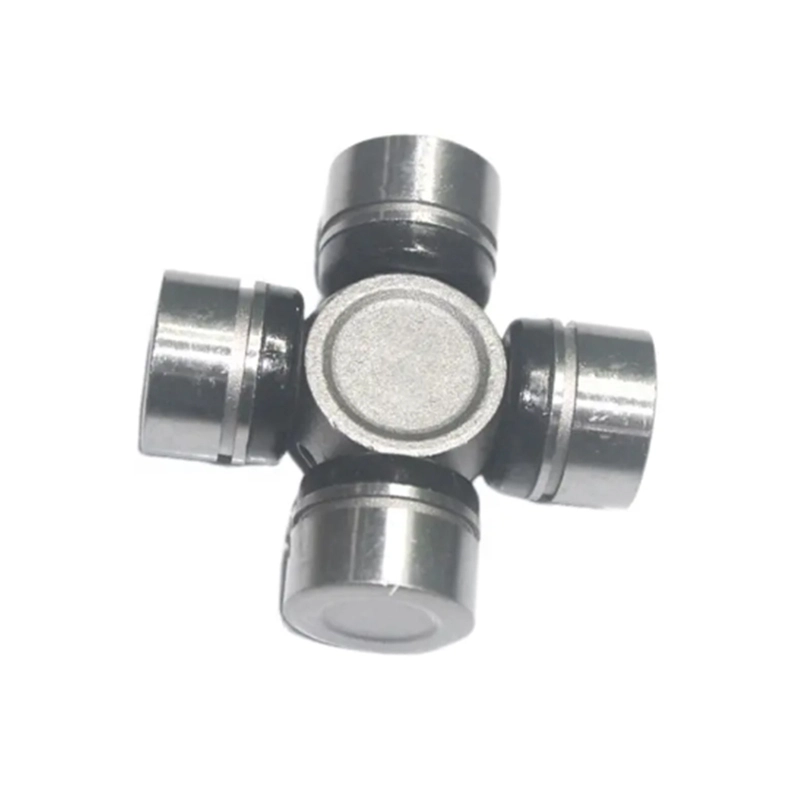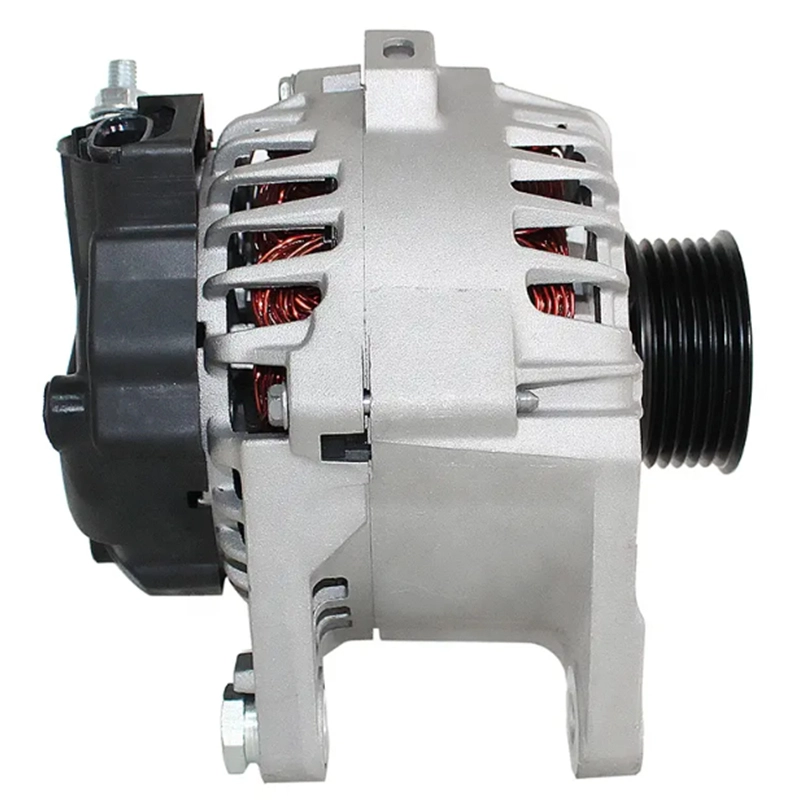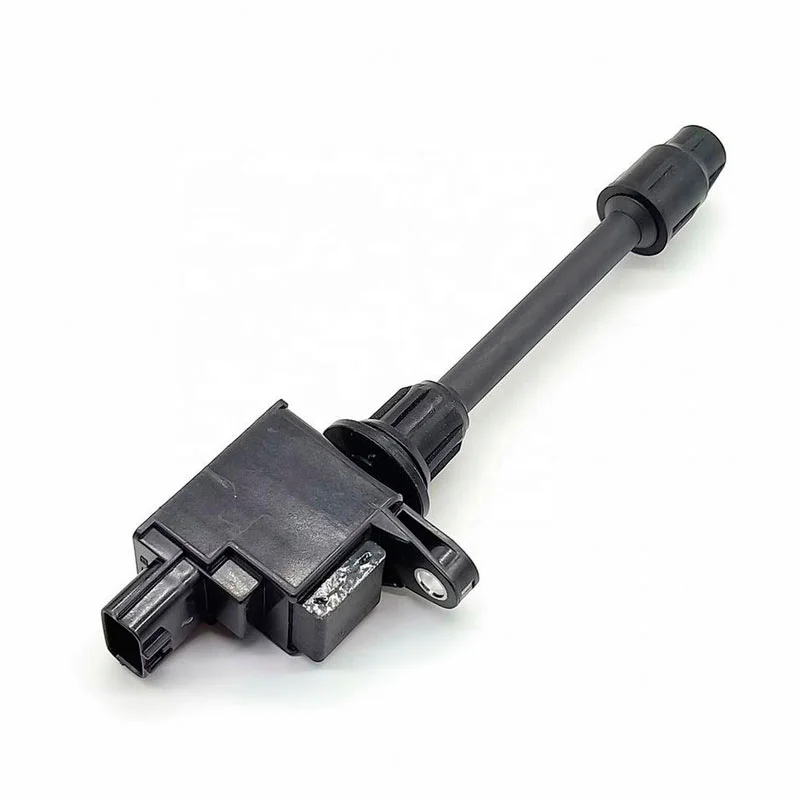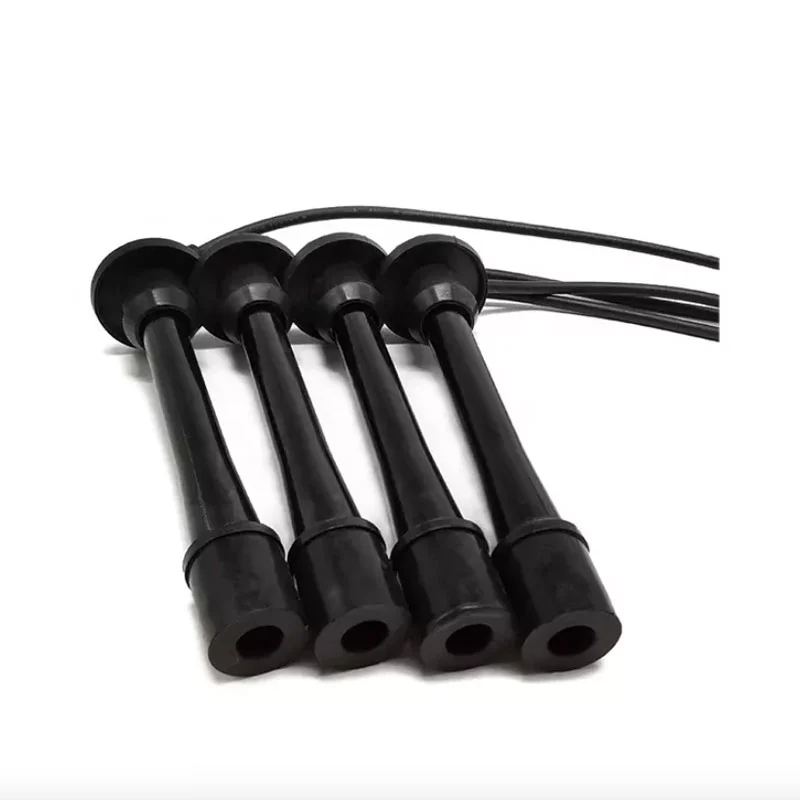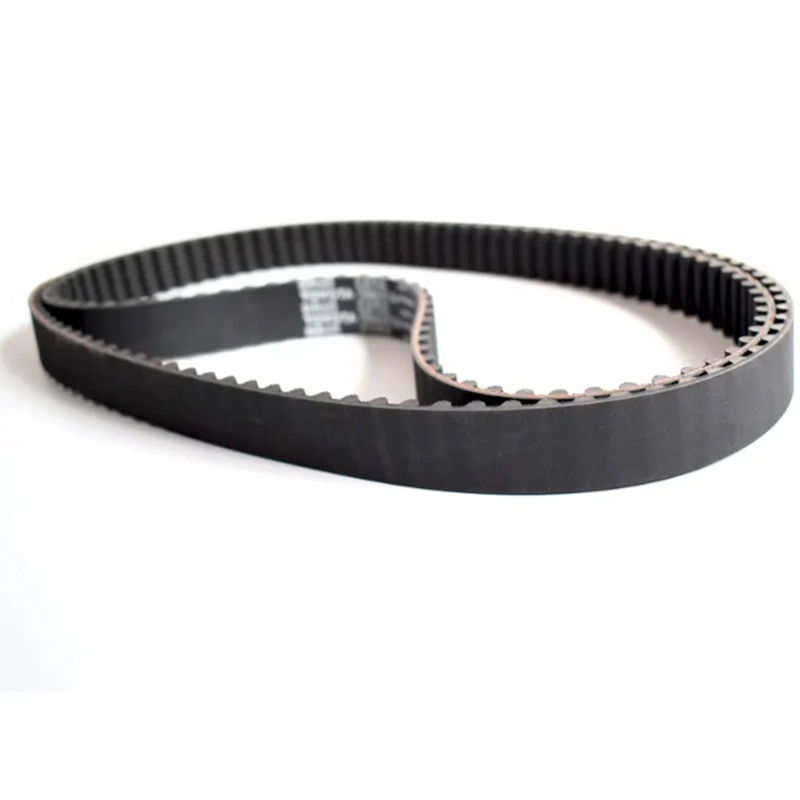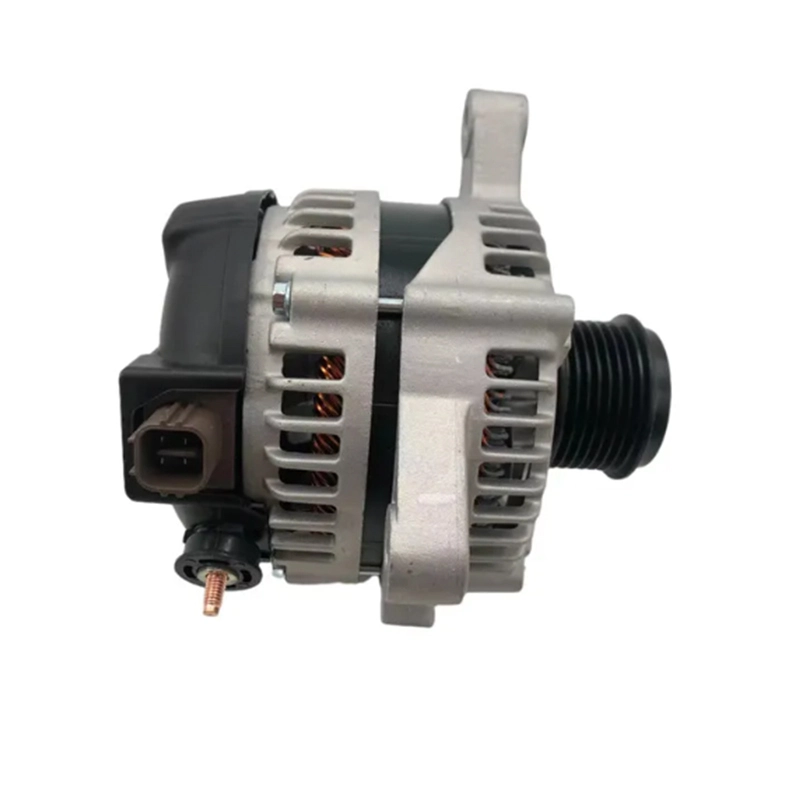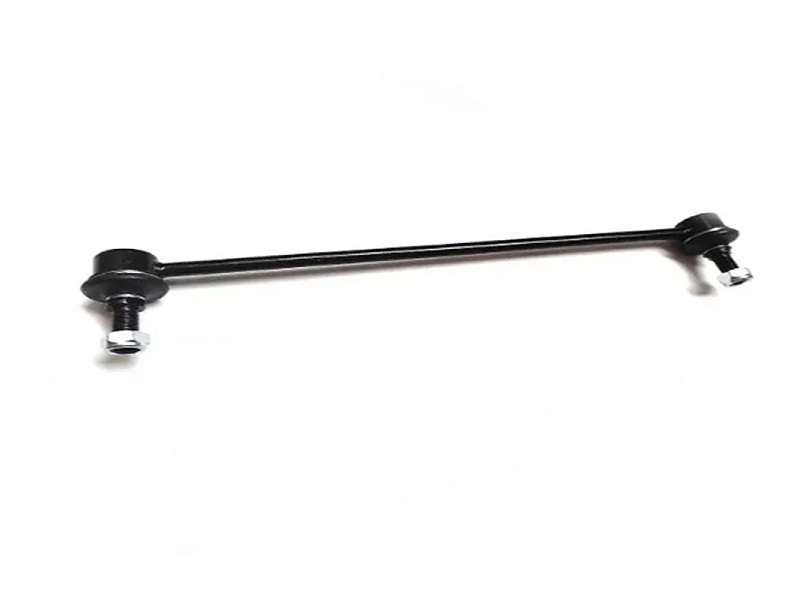
Products
- OEM 90919-02239 Car Plug Coil for Toyota
- OEM 90919-02237 Engine Coil Pack for Toyota
- OEM 90919-02260 Car Ignition Coil for Toyota
- OEM 90919-02250 Car Engine Ignition Coil for Toyota
- OEM 90919-A2003 Car Ignition Coil for Toyota
- OEM 30520-PNA-007 Universal Ignition Coil for Honda
- OEM 30520-PWC-003 New Car Ignition Coil for Honda
- OEM 30520-RNA-A01 Ignition Coil Set for Honda
- OEM 30520-PGK-A01 Ignition Coil of Car for Honda
- OEM 30520-R40-007 Quality Ignition Coil for Honda
- OEM 22448-1HC0A Car Spark Plug Ignition Coil for Nissan
- OEM 22448-2Y000 Ignition Coil Pack for Nissan
- OEM 22448-ED000 Coil Pack Ignition System for Nissan
- OEM 22448-1HM0A Car Coil Pack for Nissan
- OEM 22448-JA00C Car Engine Coil for Nissan
- OEM 27300-2E000 Engine Ignition Coil for Hyundai
- OEM 27301-2B010 Ignition Coil In Automobile for Hyundai
- OEM 27301-3F100 Vehicle Ignition Coil for Hyundai
- OEM 27301-23400 Ignition Coil In A Car for Hyundai
- OEM 27301-3C000 Electronic Ignition Coil for Hyundai
- OEM 90919-22372 Wires To Spark Plugs for Toyota
- OEM 90919-22386 Spark Plug Coil Wire Replacement for Toyota
- OEM 90919-22400 Universal Spark Plug Wire Set for Toyota
- OEM 90919-21604 New Spark Plug Wires for Toyota
- OEM 90919-22387 Ign Wire Set for Toyota
- OEM 32700-P1J-E01 Car Ignition Leads for Honda
- OEM 32700-P0A-A00 Ignition Lead Cable for Honda
- OEM 32700-PT0-000 Spark Plug Lead Wire for Honda
- OEM 32700-PAA-A02 Car Plug Leads for Honda
- OEM 22450-65Y25 Custom Made Spark Plug Wires for Nissan
- OEM 22450-86G27 Spark Plug Wire Set for Nissan
- OEM 22450-74Y25 Plug Wire Replacement for Nissan
- OEM 22450-36A25 Car Spark Plug Wire for Nissan
- OEM 22440-VJ202 China Spark Plug Wire
- OEM 27501-22B00 Spark Plug Wire Components for Hyundai
- OEM 27501-37A00 Car Spark Plug Leads for Hyundai
- OEM 27501-26D00 Wireset For Spark Plug for Hyundai
- OEM 27501-22B10 Spark Plug Wire Accessories for Hyundai
- OEM 27501-38B00 Custom Made Ignition Leads for Hyundai
- OEM 27501-02H00 Ignition Coil Spark Plug Wire for Hyundai
- OEM 12361-16290 Engine Mounting for Toyota
- OEM 12361-15170 Engine Mount Bracket Replacement for Toyota
- OEM 12362-0H020 China Engine Mounting for Toyota
- OEM 12372-10040 Engine Mounting Factory for Toyota
- OEM 12371-0D040 Custom Engine Mounting for Toyota
- OEM 11220-CN000 Engine Mounting for Car for Nissan
- OEM 11220-50Y11 Engine Holder in Car for Nissan
- OEM 11210-CY01B Car Motor Mount Replacement for Nissan
- OEM 11350-JP00B Engine Mounts in Car for Nissan
- OEM 11210-8H305 Car Engine Support for Nissan
- OEM 50820-SMG-E03 Car Engine Mount for Honda
- OEM 50805-S04-000 Car Engine Bracket for Honda
- OEM 50830-SDA-A02 Car Engine Mount for Honda
- OEM 50830-TA2-H01 Car Engine Mount for Honda
- OEM 50821-S0A-003 Car Engine Mount for Honda
- OEM 21810-1C220 Engine Mounting Manufacturer for Hyundai
- OEM 21810-25010 Engine Mounting Supplier for Hyundai
- OEM 21830-2E400 Car Engine Mounting for Hyundai
- OEM 21810-2E000 Engine Mounting for Toyota
- OEM 21810-2C300 Engine Mounting Replacement for Hyundai
- OEM 23390-0L041 Auto Fuel Systems for Toyota
- OEM 23300-31100 Car Fuel Filter for Toyota
- OEM 23390-0L090 Automobile Fuel Filters for Toyota
- OEM 23390-78220 Car Fuel Filter for Toyota
- OEM 23300-75140 Car Fuel Filter for Toyota
- OEM 23390-51070 Universal Car Fuel Filter for Toyota
- OEM 23390-64480 Car Fuel Filter for Toyota
- OEM 23390-78221 Car Fuel Filter for Toyota
- OEM 23303-64010 Car Fuel Filter for Toyota
- OEM 23300-75140 Car Fuel Filter Replacement for Toyota
- OEM 16400-ES60A Car Fuel Filter for Nissan
- OEM 16400-V2700 Car Petrol Filter for Nissan
- OEM 16400-9320R Auto Parts Fuel Filter for Nissan
- OEM 16403-4KV0A Vehicle Fuel Filter for Nissan
- OEM 31920-S1900 Car Fuel Filter for Hyundai
- OEM 31911-25000 Car Fuel Filter for Hyundai
- OEM 33095-3KAA0 Car Fuel Filter for Hyundai
- OEM 16900-S84-G01 Automobile Fuel Filter for Honda
- OEM 16010-ST5-931 Fuel Filter Parts for Honda
- OEM 13321740985 Car Fuel Filter for BMW
- OEM 90915-YZZE1 Oil Filter in China for Toyota
- OEM 90915-YZZE2 Oil Filter Companies for Toyota
- OEM 90915-10003 Oil Filter for Car for Toyota
- OEM 90915-YZZD4 Vehicle Oil Filter for Toyota
- OEM 90915-YZZD2 Automobile Oil Filter Manufacturers for Toyota
- OEM 04152-YZZA1 Car Engine Oil Filter for Toyota
- OEM 90915-30002 Oil Filter Parts for Toyota
- OEM 04152-YZZA6 China Engine Oil Filter for Toyota
- OEM 04152-31090 Automatic Oil Filter for BMW
- OEM 15400-PLC-004 Car Oil Filters in Bulk for Honda
- OEM 15400-PLM-A01 Engine Oil Filter Replacement for Honda
- OEM 15400-RTA-003 Filter for Car Oil for Honda
- OEM 15400-RAF-T01 Car Parts Oil Filter for Honda
- OEM 15400-RAF-T01 Bulk Oil Filter for Honda
- OEM 15209-2W200 Bulk Automotive Oil Filters for Nissan
- OEM 15208-31U00 Engine Oil Filter Manufacturer for Nissan
- OEM 15208-65F0A Engine Oil Filter Supplier for Nissan
- OEM 26300-2Y500 Oil Filter for a Car for Hyundai
- OEM 26300-35504 Oil Filter of Car for Hyundai
- OEM 26320-2A500 Oil Filter on Car for Hyundai
- OEM 23221-46060 New Fuel Pump for Toyota
- OEM 23220-74021 Auto Electric Fuel Pump for Toyota
- OEM 23220-28090 Auto Electric Fuel Pump for Toyota
- OEM 23221-50100 Auto Electric Fuel Pump for Toyota
- OEM 23221-50060 Fuel Pump of a Car for Toyota
- OEM 23221-22140 Electric Fuel Pump for Toyota
- OEM 23220-74021 Fuel Pump Parts for Toyota
- OEM 23221-15040 Fuel Pump for a Car for Toyota
- OEM 23220-50271 Auto Electric Fuel Pump for Toyota
- OEM 23221-66040 Auto Electric Fuel Pump for Toyota
- OEM 17042-VJ200 Car Fuel Pump Parts for Nissan
- OEM 17042-3Y500 Electric Fuel Pumps for Cars for Nissan
- OEM 17042-8H301 Auto Parts Fuel Pump for Nissan
- OEM 31111-22050 Fuel Pump for Hyundai
- OEM 31111-38000 Vehicle Fuel Pump for Hyundai
- OEM 31111-25000 Auto Electric Fuel Pump for Hyundai
- OEM 31111-1R000 Auto Electric Fuel Pump for Hyundai
- OEM 31111-02000 Fuel Pumps for Hyundai
- OEM 0004707894 Automotive Electric Fuel Pump for Benz
- OEM 580254950 Auto Electric Fuel Pump for Benz
- OEM 13568-19046 Vehicle Timing Belt for Toyota
- OEM 13568-19106 Automotive Timing Chains for Toyota
- OEM 13568-29025 Car Timing Chain for Toyota
- OEM 13568-09041 Car Timing Chain Replacement for Toyota
- OEM 13568-39015 Timing Chain in Car Engine for Toyota
- OEM 13568-64010 Vehicle Timing Chain for Toyota
- OEM 13568-69035 Timing Belt Chain Replacement for Toyota
- OEM 13568-59106 Timing Chain Replacement for Toyota
- OEM 13568-59175 Timing Belt Timing Chain for Toyota
- OEM 13568-09130 Timing Chain Supplier for Toyota
- OEM 13568-43010 New Timing Belt for Toyota
- OEM 13568-69095 Timing Chain Replacement for Toyota
- OEM 14400-P7J-004 Timing Chain for Honda
- OEM 14400-RCA-A01 Car Engine Timing Chain for Honda
- OEM 14400-PMM-A02 China Timing Chain for Honda
- OEM 24312-27000 Timing Chain Factory for Hyundai
- OEM 24312-38220 Timing Chain Manufacturer for Hyundai
- OEM 23356-42500 Car Engine Timing Belt for Hyundai
- OEM 24312-37500 Engine Timing Belt Replacement for Hyundai
- OEM 13028-31B10 Engine Drive Belt Replacement for Nissan
- OEM 28100-0L180 Engine Starter for Toyota
- OEM 28100-0L200 Car Starter Motor Parts for Toyota
- OEM 28100-0S050 Starting Motor in Car for Toyota
- OEM 28100-0S031 Car Engine Starter for Toyota
- OEM 28100-0T340 Starter Motor in Automobile for Toyota
- OEM 28100-0M110 Vehicle Starter Motor for Toyota
- OEM 28100-51070 Start Engine Motor for Toyota
- OEM 28100-47200 Auto Engine Starter for Toyota
- OEM 36100-2B320 Starter Motor Company for Hyundai
- OEM 36100-2E551 Starter Motor for Sale for Hyundai
- OEM 36100-03101 Starter in Car Engine for Hyundai
- OEM 31200-RMX-004 Starter in a Car Engine for Honda
- OEM 31200-RBJ-004 Automotive Starting System for Honda
- OEM 31200-5A2-A51 Starting Motor for Honda
- OEM 31200-RAD-003 Automatic Motor Starter for Honda
- OEM 31200-R1A-A01 Auto Mobile Starter for Honda
- OEM 23300-VC201 Vehicle Engine Starter for Nissan
- OEM 23300-EY00C Car Engine Starter Motor for Nissan
- OEM 23300-EE00A Car Parts Starter Motor for Nissan
- OEM 23300-6N200 Starter Motor for Sale for Nissan
- OEM 27060-31010 Automotive Alternator Parts for Toyota
- OEM 27060-0V050 Auto Electric Alternators for Toyota
- OEM 27060-0V030 Car Alternator Parts Suppliers for Toyota
- OEM 27060-38050 Parts of Alternator in Car for Toyota
- OEM 27060-36040 Alternator Wholesale for Toyota
- OEM 27060-75460 Car Parts Alternator for Toyota
- OEM 27060-28300 Auto Parts Alternator for Toyota
- OEM 23100-EG010 Car Ac Generator for Nissan
- OEM 23100-1AA1A Car Ac Alternator for Nissan
- OEM 23100-JA04D New Car Alternator for Nissan
- OEM 23100-2DZ0A Car Engine Alternator for Nissan
- OEM 23100-4BE0A Alternators for Car for Nissan
- OEM 31100-RGW-A01 Vehicle Alternator for Honda
- OEM 31100-RX0-A01 Vehicle Alternator for Honda
- OEM 31100-5J0-A01 Car Alternator Components for Honda
- OEM 31100-RV0-A01 Car Alternators for Honda
- OEM 31100-R40-A01 Car Alternator System for Honda
- OEM 37300-2E200 Vehicle Alternator for Hyundai
- OEM 37300-2G950 Car Alternator Spare Parts for Hyundai
- OEM 37300-2E400 Auto Alternators for Hyundai
- OEM 48820-47010 Swift Stabilizer Link for Toyota
- OEM 48820-0D010 Car Stabilizer Rod Replacement for Toyota
- OEM 48830-33040 Adjustable Sway Bar End Links for Toyota
- OEM 48830-0C010 SUniversal Sway Bar End Links for Toyota
- OEM 48820-42030 Sway Bar Stabilizer Link for Toyota
- OEM 48820-28050 Custom Sway Bar End Links Replacement for Toyota
- OEM 48820-52030 Sway Link Replacement for Toyota
- OEM 48810-0K010 Car Sway Bar Links for Toyota
- OEM 54618-1C101 Sway Bar Car Part for Honda
- OEM 54618-JN00A Anti Roll Sway Bar for Nissan
- OEM 54618-ED000 Sway Bar Link on Car for Nissan
- OEM 51320-T7A-003 Anti Roll Bar Stabiliser Link for Honda
- OEM 51320-T5A-003 Anti Roll Bar Link Rod for Honda
- OEM 51321-SNA-A01 Arm Sway for Honda
- OEM 51320-T2A-A01 Anti Roll Bar Link Arm for Honda
- OEM 51320-SAA-J01 Anti Roll Bar Link Replacement for Honda
- OEM 54830-2W000 Automobile Sway Bar for Hyundai
- OEM 54830-0X000 Sway Bar in Links for Hyundai
- OEM 54840-2T000 Suspension Stabilizer Bar Link for Hyundai
- OEM 54840-4H000 Sway Bar Control Link for Hyundai
- OEM 43350-29065 Car Bolt Joints for Toyota
- OEM 43330-59125 Automotive Suspension Ball Joints for Toyota
- OEM 43330-29425 Car Suspension Arm Ball Joint for Toyota
- OEM 43350-09100 Suspension Rod Ball Joint for Toyota
- OEM 43330-09660 Suspension Joints Replacement for Toyota
- OEM 43330-39375 Suspension Component Ball Joint for Toyota
- OEM 43350-39095 China Steering Ball Joint Replacement for Toyota
- OEM 43330-09360 Suspension Ball Joint Replacement for Toyota
- OEM 43330-60010 Ball Joint in Car Suspension for Toyota
- OEM 43310-09015 Suspension Ball Joint Manufacturers for Toyota
- OEM 51220-T2A-305 Steering Rack Ball Joint for Honda
- OEM 51220-TR0-A01 Universal Ball Joint Suppliers for Honda
- OEM 51220-S9A-982 Car Steering Ball Joint for Honda
- OEM 51220-SWN-H01 Steering Linkage Ball Joint Replacement for Honda
- OEM 51270-SR3-023 Control Arm Ball Joint Replacement for Honda
- OEM 54530-C1100 Vehicle Ball Joint for Hyundai
- OEM 54430-3F600 Auto Car Parts Ball Joints for Hyundai
- OEM 54440-H1000 Car Wheel Ball Joint Replacement for Hyundai
- OEM 51760-1G000 Ball Joint on Control Arm for Hyundai
- OEM 40160-VW000 Suspension Arm Ball Joint Replacement for Nissan
- OEM 48068-12250 Car Arm Suspension for Toyota
- OEM 48069-47040 Suspension Arms on a Car for Toyota
- OEM 48068-06150 Arm Suspension in Car for Toyota
- OEM 48068-06080 Car Suspension Control Arm for Toyota
- OEM 48066-29075 Car Suspension Arm for Toyota
- OEM 48068-0K010 Car Arm Suspension for Toyota
- OEM 48610-60030 Car Arm Suspension for Toyota
- OEM 48610-0K040 Car Arm Suspension for Toyota
- OEM 48069-59035 Suspension Arm for Toyota
- OEM 48069-87403 Car Wheel Arm for Toyota
- OEM 54501-3ST0A Car Arm Suspension for Nissan
- OEM 54501-1HJ0A Car Arm Suspension for Nissan
- OEM 54501-1AA0A Car Arm Suspension for Nissan
- OEM 54501-5RF0A Vehicle Control Arm for Nissan
- OEM 54500-6CT1A Automobile Control Arm for Nissan
- OEM 54500-3ST0A Car Arm Suspension for Nissan
- OEM 54501-5RB0C Car Arm Suspension for Nissan
- OEM 51360-SZA-A02 Car Arm Suspension for Honda
- OEM 51360-T6A-A01 Car Wheel Control Arm for Honda
- OEM 51360-TEA-T10 Car Arm Suspension for Honda
- OEM 48609-02220 Car Suspension Top Mount for Toyota
- OEM 48609-0E030 Top of Strut for Toyota
- OEM 48609-02180 Strut Top Replacement for Toyota
- OEM 48609-0D140 Strut Top Cap for Toyota
- OEM 48609-02240 Strut Mount Top for Toyota
- OEM 48609-02150 Car Top Mounts for Toyota
- OEM 48609-48040 Car Suspension Mount for Toyota
- OEM 48609-0E070 Adjustable Strut Mount for Toyota
- OEM 54610-F2000 Car Strut Mounts for Hyundai
- OEM 54610-H3000 Strut Mount Cover for Hyundai
- OEM 54610-2W000 Car Strut Mounts for Hyundai
- OEM 54610-A5000 Car Strut Mounts for Hyundai
- OEM 54610-3X100 Car Strut Mounts for Hyundai
- OEM 54610-0Q000 Strut Mount Parts for Hyundai
- OEM 54610-2E000 Car Strut Mounts for Hyundai
- OEM 54610-2D000 Universal Strut Mount for Hyundai
- OEM 51920-T6A-J01 Suspension Strut Mount Cap for Honda
- OEM 51920-SHJ-A02 Suspension Strut Mount Replacement for Honda
- OEM 54321-1FE0A Hood Strut Mount for Nissan
- OEM 54321-1KA0B Strut Mount on Car for Nissan
- OEM 48655-28020 Car Suspension Bushing for Toyota
- OEM 48815-02190 Bush for Car Suspension for Toyota
- OEM 48654-12120 Car Suspension Bushing for Toyota
- OEM 48061-50070 Car Suspension Bushing for Toyota
- OEM 48655-60030 Car Suspension Bush Kit for Toyota
- OEM 48655-42060 Car Suspension Bushing for Toyota
- OEM 48654-0K040 Car Suspension Bushing for Toyota
- OEM 48818-06230 Bush on Car Suspension for Toyota
- OEM 48725-52020 Car Suspension Bushing for Toyota
- OEM 48815-602400 Bush in Car Suspension for Toyota
- OEM 48654-0K080 Car Suspension Bushing for Toyota
- OEM 48674-26040 Car Suspension Bushing for Toyota
- OEM 48815-60180 Car Suspension Bushing for Toyota
- OEM 55160-1J200 Car Suspension Bushing for Hyundai
- OEM 54584-3S000 Car Suspension Bushing for Hyundai
- OEM 54550-2P000 Car Suspension Bushing for Hyundai
- OEM 54584-3X000 Car Suspension Bushing for Hyundai
- OEM 54570-BB00A Car Suspension Bushing for Nissan
- OEM 54542-1LB0A Car Suspension Bushing for Nissan
- OEM 90369-35029 Auto Wheel Hub Bearing for Toyota
- OEM 90369-38021 Automotive Wheel Bearing for Toyota
- OEM 90369-45003 Wheel Bearing of a Car for Toyota
- OEM 90366-27001 Car Wheel Bearing Replacement for Toyota
- OEM 90363-40066 Hub Bearing on a Car for Toyota
- OEM 90369-T0007 Bearing Car Parts for Toyota
- OEM 90369-43008 Wheel Bearing for Toyota
- OEM 90369-40066 Auto Parts Wheel Bearing for Toyota
- OEM 90366-T0060 Auto Wheel Bearing Replacement for Toyota
- OEM 90369-49002 Auto Parts Bearing for Toyota
- OEM 90368-45087 Car Parts Wheel Bearing for Toyota
- OEM 90363-T0009 Car Wheel Bearing for Toyota
- OEM 90369-43008 Wheel Bearing for a Car for Toyota
- OEM 51720-2K000 Hub Bearing for Car for Hyundai
- OEM 51720-29400 Car Wheel Hub Bearing for Hyundai
- OEM AB311215BC Bearing in the Car for Ford
- OEM A2219810306 Bearing Automobile for Benz
- OEM A1669810006 Car Tire Bearings for Benz
- OEM A1649810406 Bearings in Wheels of Car for Benz
- OEM 43210-8H300 Car Hub and Bearing for Nissan
- OEM 04371-60051 Automobile Universal Joint for Toyota
- OEM 04371-35051 U Joint for Sale for Toyota
- OEM 04371-35050 U Joint Factory for Toyota
- OEM 04371-30040 Universal Joint in Car Steering System for Toyota
- OEM 04371-25010 Vehicle Universal Joint for Toyota
- OEM 04371-35090 U Joints for Toyota
- OEM 04371-36011 Uni Joint for Toyota
- OEM 04371-30020 Universal Joint for Car for Toyota
- OEM 04371-36050 Custom U Joint for Toyota
- OEM 04371-60070 Universal U Joint Replacement for Toyota
- OEM 04371-35031 U Joint China for Toyota
- OEM 04371-10011 U Joint Vehicle for Toyota
- OEM 04371-36030 Universal Joint Car Part for Toyota
- OEM 04371-30011 U Joint Car for Toyota
- OEM 04371-0K060 Auto U Joint for Toyota
- OEM 04371-0K080 U Joint Auto Parts for Toyota
- OEM 04371-0K120 U Joint Car Part for Toyota
- OEM 04371-35051 U Joint Manufacturer for Toyota
- OEM 04371-36030 Universal U Joint for Toyota
- OEM 04371-60060 Uni Joint Replacement for Toyota
- OEM 44250-02010 Electric Power Steering Box for Toyota
- OEM 45510-0R010 Automotive Power Steering Gear Boxes for Toyota
- OEM 44250-04040 Electric Steering Box for Toyota
- OEM 45510-42010 Car Steering Gear Box for Toyota
- OEM 45510-12290 Power Steering Boxes for Toyota
- OEM 45510-52040 Car Steering Gear Box for Toyota
- OEM 45510-BZ120 Gear Box Steering System for Toyota
- OEM 44204-12030 Electric Power Steering Gear Box for Toyota
- OEM 49001-95F0A Steering Gearbox Parts for Nissan
- OEM 44250-06270 Electronic Power Steering Gear Box for Toyota
- OEM 45500-28080 Car Steering Gear Box for Toyota
- OEM 44250-42020 Car Steering Gear Box for Toyota
- OEM 44200-26491 Car Steering Gear Box for Toyota
- OEM 44250-12420 Gear Box Power Steering for Toyota
- OEM 53601-SNB-T02 Adjusting Power Steering Gear Box for Honda
- OEM 53601-SKN-E02 Universal Power Steering Box for Honda
- OEM 53601-SDA-A04 Car Steering Gear Box for Honda
- OEM 57705-43011 Car Steering Gear Box for Hyundai
- OEM 57700-4F000 Car Steering Gear Box for Hyundai
- OEM 45046-49095 Vehicle Tie Rod End for Toyota
- OEM 45046-09281 Car Wheel Tie Rod for Toyota
- OEM 45046-49145 Steering Ends for Toyota
- OEM 45046-69245 Steering Rods Replacement for Toyota
- OEM 45046-09030 China Steering Tie Rod Replacementfor Toyota
- OEM 45046-09261 Steering Tie Rod End Factory for Toyota
- OEM 45046-02040 Car Steering Tie Rod for Toyota
- OEM 45046-39335 Steering Rod Ends for Toyota
- OEM 45046-29456 Power Steering Tie Rod End Replacement for Toyota
- OEM 56820-2H000 Universal Tie Rod for Hyundai
- OEM 56820-38000 New Tie Rods for Hyundai
- OEM 56820-2E000 Tie Rod Replacement Parts for Hyundai
- OEM 56820-0U900 Steering Wheel Tie Rod for Hyundai
- OEM 56820-2S000 Universal Tie Rod Ends for Hyundai
- OEM 56820-02500 Steering Track Rod End for Hyundai
- OEM 56820-1Y500 Tie Rod Parts for Hyundai
- OEM D8520-1HK0A Tie Rod Car Part for Nissan
- OEM 48520-0P725 Steering Link Rod for Nissan
- OEM UR56-32-250 Tie Rod End on Car for Ford
- OEM 53540-S5A Steering Parts Rack End for Honda
- OEM 45503-05020 Power Steering Rack End for Toyota
- OEM 45503-19155 Rack End of Car for Toyota
- OEM 45503-29425 Rack End Car Part for Toyota
- OEM 45503-09331 Rack End Steering for Toyota
- OEM 45503-0K130 Rack End in Car for Toyota
- OEM 45503-29565 Rack End for Car for Toyota
- OEM 45503-69015 Steering Rack Tie Rod Ends for Toyota
- OEM 45503-B1020 Tie Rod and Rack End for Toyota
- OEM 45503-09500 Rack Ends for Sale for Toyota
- OEM 45503-19125 Vehicle Rack End for Toyota
- OEM 45503-39345 Steering Rack End for Toyota
- OEM 57724-2S100 Car Rack Ends for Hyundai
- OEM 57724-2E000 Car Rack Ends for Hyundai
- OEM 56540-B4000 Car Rack Ends for Hyundai
- OEM 56540-2H000 Car Rack Ends for Hyundai
- OEM 56820-02500 Car Rack Ends for Hyundai
- OEM 53010-SDA-A01 Car Rack Ends for Honda
- OEM 53010-SJA-A01 Steering Rack End Replacement for Honda
- OEM 53010-TK8-A01 Car Rack Ends for Honda
- OEM 53010-T0A-A01 Car Rack Ends for Honda
 English
English 